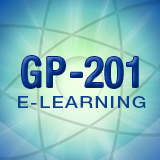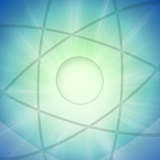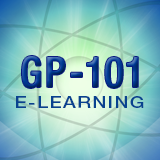
|
|
|
|
E-learning courses mean no travel and no time constraints for you. You choose the course, or courses you want to take and then take the course right from any computer at any time.
Please see below for classes currently being offered. If you would like to register for a class simply click the Register button. Payment is easily processed with your corporate credit card online. If you need to pay with a PO please contact Nicole Guglietta at [email protected].
Note: The course descriptions that have a , , , , or or are part of the Training Trax "Pathways To Expertise" program. are part of the Training Trax "Pathways To Expertise" program.
|
|
|
Contamination Monitors - Introduction & Monitor Software This session discusses Mirion's Contamination Monitors (Legacay Canberra™ - ARGOS™/ SIRIUS™-5 / GEM™-5 / CRONOS® product line), and interaction with the monitoring software and basic setup.
- Model overview
- Software overview
- Basic setup and operation considerations
|
Developing and Maintaining a Nuclide LIbrary with a Pedigree This session discusses how to develop and maintain a nuclide library with a pedigree. This webinar will be presented as a PowerPoint slideshow covering the following topics:
- What is a pedigree for a nuclide library
- Reference sources that can be used
- On-line
- Published / printed materials
- Discussion of the various formats and available information
- Selection of energy lines to be used for identification and quantification
- How to handle energy lines that are too close to separate
- Use of the Nuclide Library Editor
- Introduction to the Nuclide Library Editor
- Nuclide Information
- Energy Lines and Abundance
- Maintaining the pedigree of the library
|
Fundamentals of Gas Flow Proportional Counting This session will provide the user with a refresher on the history, operation, and calibration of gas flow proportional counting systems. We will also introduce hardware and software options to ensure your lab is operating to its full potential. This session will be presented as a PowerPoint slideshow covering the following topics:
- History of Alpha/Beta Counting
- Theory of Operation of Gas Flow Proportional Counters
- Calibrating your Gas Flow Proportional Counter
- Evolution of Mirion/Canberra™ Counting Systems
- Comparison of Eclipse™ Control and Analysis Software and Apex-Alpha/Beta™ Counting ProductivitySoftware Platforms
- Why Apex® Product Suite is better
- Transitioning from Eclipse software to Apex-Alpha/Beta software
|
GP-101 Principles of Radiation Detection
 This training course provides an introduction to the fundamental principles and methods of radiation detection. Covered topics include radioactive decay, types of radiation detectors, and an overview of measurement applications involving gamma spectroscopy, alpha spectroscopy, and alpha/beta counting. This course is presented as a self-directed “E-Learning” experience that allows coverage of the training materials at whatever time and pace is best for each student. This E-Learning course is intended to serve as the first milestone within Mirion’s “Training Trax” program, developed to allow students to advance to higher levels of expertise in a variety of specialized software and measurement applications. Students will be required to pass a final exam to confirm and receive credit for successful completion of this course. This training course provides an introduction to the fundamental principles and methods of radiation detection. Covered topics include radioactive decay, types of radiation detectors, and an overview of measurement applications involving gamma spectroscopy, alpha spectroscopy, and alpha/beta counting. This course is presented as a self-directed “E-Learning” experience that allows coverage of the training materials at whatever time and pace is best for each student. This E-Learning course is intended to serve as the first milestone within Mirion’s “Training Trax” program, developed to allow students to advance to higher levels of expertise in a variety of specialized software and measurement applications. Students will be required to pass a final exam to confirm and receive credit for successful completion of this course.
This course expires 90 days after registration.
Click link below for full course description.
Continuing Education Credits
|
GP-201 Fundamentals of Gamma Spectroscopy 
 This course covers the complete range of gamma spectroscopy principles from a review of radiation detection principles to evaluation of results and everything in between. This is a concentrated, concise course that includes a practical approach to all aspects of gamma-ray spectrometry. This course is presented as a self-directed “E-Learning” experience that allows coverage of the training materials at whatever time and pace is best for each student. This E-Learning course is intended to serve as the second foundational step for further study in gamma spectroscopy software and hardware theory and operations within Mirion’s “Training Trax” program. This course is not a hardware or software operations course but does include an introduction to Mirion gamma spectroscopy software. The course includes progress quizzes and a final exam for credit within the Mirion TrainingTrax program. This course covers the complete range of gamma spectroscopy principles from a review of radiation detection principles to evaluation of results and everything in between. This is a concentrated, concise course that includes a practical approach to all aspects of gamma-ray spectrometry. This course is presented as a self-directed “E-Learning” experience that allows coverage of the training materials at whatever time and pace is best for each student. This E-Learning course is intended to serve as the second foundational step for further study in gamma spectroscopy software and hardware theory and operations within Mirion’s “Training Trax” program. This course is not a hardware or software operations course but does include an introduction to Mirion gamma spectroscopy software. The course includes progress quizzes and a final exam for credit within the Mirion TrainingTrax program.
This course expires 90 days after registration.
Click link below for full course description.
Continuing Education Credits
|
How to Apply Cascade Corrections in Mirion Software This 2-hour session discusses cascade (true coincidence) summing effects that can be significant for many gamma spectroscopy measurement applications, and how to properly correct for those effects within the Mirion Genie™2000 and Apex-Gamma™ analysis software. This webinar will be presented as a PowerPoint slideshow covering the following topics:
- Description of cascade (true coincidence) summing effects
- Introduction to Geometry Composer
- Use of LabSOCS™ geometry templates for sample modeling
- How to apply cascade corrections within standard Genie 2000 software
- How to apply cascade corrections within Apex-Gamma software
|
iCAM Overview Training session
This session will provide an overview of the iCAM™, Intelligent Alpha/Beta Continuous Air Monitor, and be presented as a PowerPoint slideshow covering the following topics:
- Description of major components
- Operating principles
- Quick setup guidelines
- Description of alarms
- Calibration features
- Overview of the iConfig software
|
Modifying Report Templates Using Stimulsoft Learn to modify standard report templates for Apex InVivo™ Whole Body and Lung Counting Productivity Software using Stimulsoft Reporting software. Modifying the standard report outputs will provide an opportunity to reorganize, regroup, and display report data tailored to your organization’s needs. Programming languages used in this 2-hour course will be SQL (Structured Query Language) and C# (C-Sharp) programming languages by Microsoft.
|









 ,
, ,
, or
or are part of the Training Trax "Pathways To Expertise" program.
are part of the Training Trax "Pathways To Expertise" program.